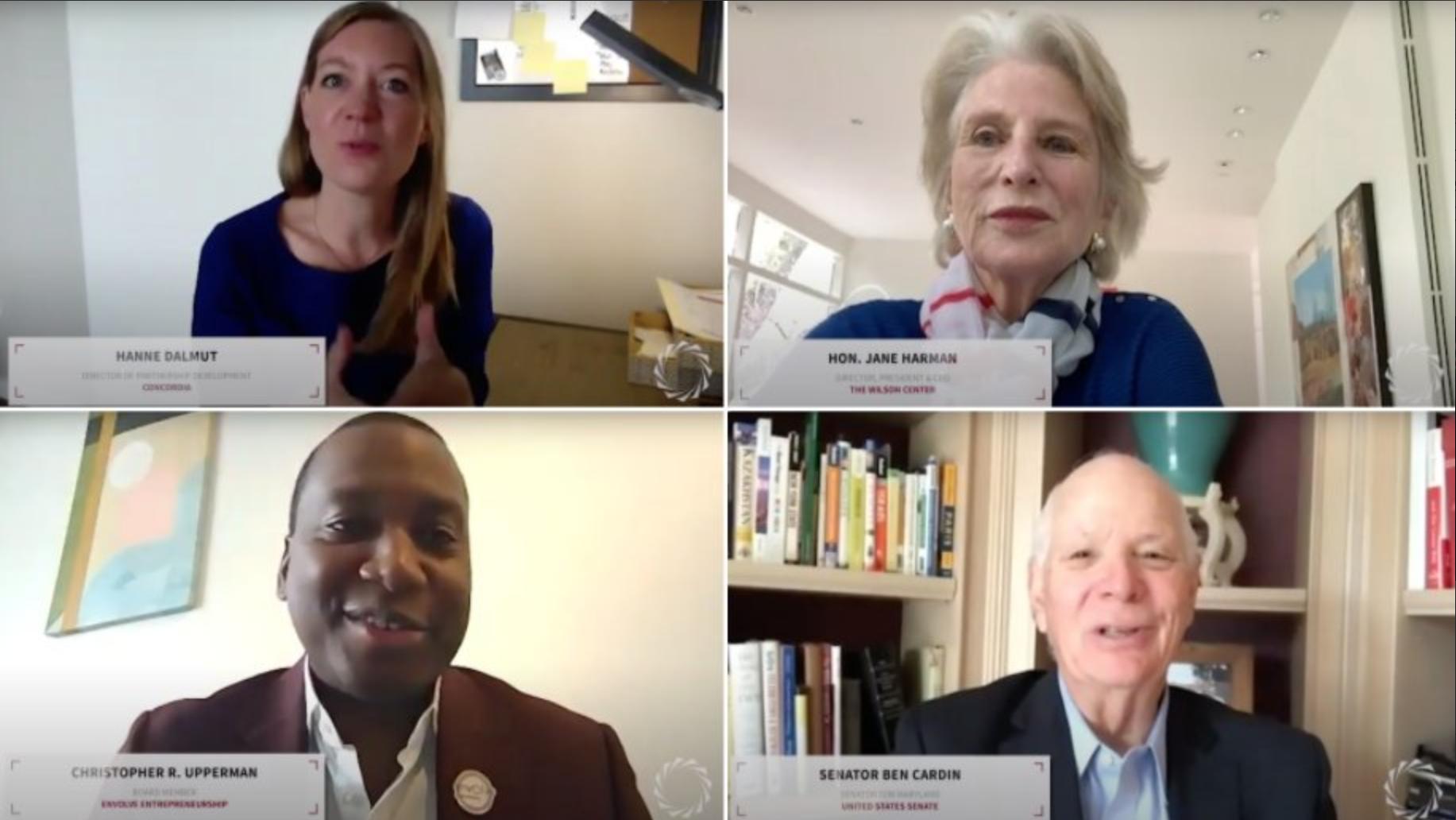Concordia’s COVID-19 Webinar Series: Protecting Small Businesses & the U.S. Economy
Tuesday, April 28, 2020 at 10:00am EDT
In just a few short months, COVID-19 has left a lasting impact on the global economy—an impact that will continue to be felt well after the pandemic has passed. In the U.S. alone, over 26.5 million people have filed for unemployment (as of April 28). As the country works to stave off an economic collapse, the U.S. Small Business Administration (SBA) and the U.S. Department of Treasury have worked together to provide relief to thousands of small businesses through the creation of the Coronavirus Aid, Relief, and Economic Security (CARES) Act. Concordia hosted Senator Benjamin Cardin (D-MD), U.S. Senate & Ranking Member, Senate Small Business Committee, and Christopher R. Upperman, Board Member of Envolve Entrepreneurship, to discuss how the CARES Act is evolving to meet the needs of micro, small, and medium enterprises. The conversation was framed with opening remarks by the Hon. Jane Harman, former congresswoman and current President & CEO of The Woodrow Wilson International Center for Scholars and Concordia Leadership Council Member.
The CARES Act is the largest single stimulus package ever passed by Congress, currently offering $2.7 trillion in economic relief. It is a new tool, designed to combat the catastrophic economic impact of the COVID19 pandemic and is offering various assistance programs, complementing the variety of provisions found in the Internal Revenue Code. Senator Cardin’s remarks focused on three specific programs, in particular: the Paycheck Protection Program (PPP), the Economic Injury Disaster Loan Emergency Advance (EIDL), and the Loan Forgiveness Program. The CARES Act is designed to encourage employers to keep employees on their payroll, despite experiencing COVID19-related economic hardship, with an employee retention tax credit (Employee Retention Credit). But the CARES Act is not a silver bullet designed to serve all businesses in the same manner: Senator Cardin urged business owners and individuals to look into the combination of different resources available to maximize and personalize the aid they can receive, depending on each program’s requirements and combination capacities. For example, the PPP is designed to cover payroll expenses, differentiating it from the EIDL grant, which also offers capital and inventory assistance.
To be passed in such a politically-divided atmosphere, the CARES Act demonstrates the value of parties working together in a bi-partisan manner. Senator Cardin mentioned the variety of compromises both Republicans and Democrats had to make to approve the legislation 96-0 in the Senate. For example, Republicans were very confident in private banks being able to support loan distribution to businesses of all sizes, while Democrats wanted to rely more on the public sector. The differing confidence levels in the ability of banks to support small business resulted in the insertion of language requiring a private bank commitment to underserved communities, with the help of non-governmental actors, instead of just dealing with existing customer bases or “larger” small businesses with reduced transaction costs. In the same spirit of collaboration, both a safety net of unemployment insurance and an Internal Revenue Service (IRS) stimulus check for taxpayers was agreed upon, achieving political wins across aisles.
Although the CARES Act provides help to individuals, businesses, hospitals, as well as state and local governments, and is leading the way for the COVID-19 fight, its implementation has been met with mixed results and some programs, such as the PPP and EIDL, are oversubscribed due to high need and demand. Now, more than ever before, non-partisan, cross-party and cross-sector collaborations need to emerge in order to combat both the current health and economic consequences, but also to prepare for the post-pandemic reality that will arise. Senator Cardin acknowledged the state of need across the country and eluded to future funding chapters as need arises, with the next package likely being “state focused.”




